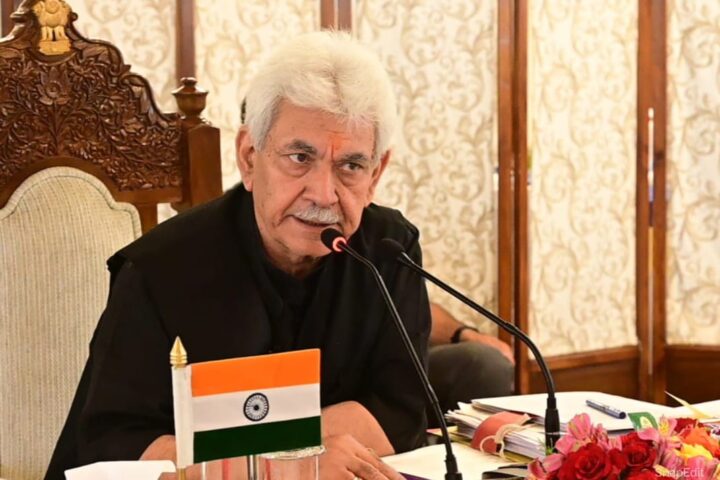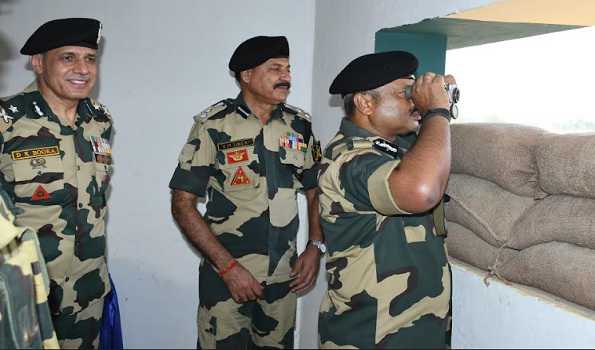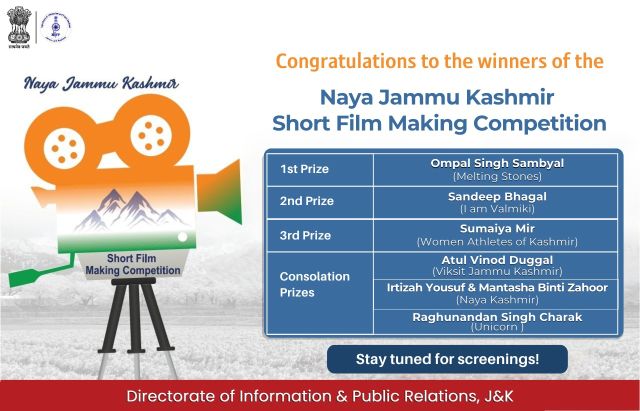By: Asif Rashid
The premise: ‘Gazwai Fikri’ is a work of fiction by Mohammad Irfan Dar and its literal translation would be close to ‘The Intellectual War’. The author initially introduced the concept of war, asserting that it consists of two types- one type is fought with soldiers, weapons, and bloodshed, famously known as military jihad (Gazwa-askari), while the second type, contrary to the first, is known as intellectual war (Gazwa fikri). While in ‘Gazwa-askari, the enemy is visible and involves physical force, coercion, and damage, in Gazwa fikri, the enemy is completely unseen, focusing its attacks on minds, hearts, and ideologies, which makes it challenging for the target to resist or evade. Despite their distinctions, both forms seek to plunder, devastate, and control in one form or the other.
“Blueprint for Dominance: Exposing the Planned Program”
The author asserts that this is a meticulously orchestrated program aimed at dominating nations and dismantling their religious and belief systems. The author emphasizes that the weapons used in this endeavor are far more insidious than cannons and missiles, as they influence the way future generations think, affecting their minds and hearts.
The author further explains the concept of intellectual warfare as a contemporary strategy used against Muslims. Historically defeated adversaries of Muslims, such as Jews and Christians, now employ education and free research as a guise to undermine Islamic sources, beliefs, and teachings through bias and hostility. This approach aims to alienate Muslims, while materialism (“Hubb al-Dunya” ) is imposed to stifle their spirituality.
HISTORY
Intellectual warfare has roots as ancient as the conflict between truth and falsehood. It traces back to the moment when Satan, driven by arrogance, attempted to mislead Adam (AS), initiating the battle of ideologies. Instead of wielding physical weapons, Satan sought to manipulate human thoughts, epitomizing what can be termed intellectual warfare. This concept is reflected in the Quranic verse where Satan whispers to Adam about the tree of immortality. (20:120)
Throughout history, adversaries of prophets employed diverse psychological and ideological tactics against their call to Islam. When Prophet Muhammad (PBUH) was sent, this struggle escalated into a comprehensive contest. The Quraysh unbelievers utilized tactics such as disseminating false interpretations, spreading lies, mockery, sarcasm, and discouragement. They inflicted mental and physical torture on Muslims, applied familial pressure, and issued threats to suppress the spread of Islam.
Challenges to Islamic Identity: Intellectual Warfare and Global Education Agenda”
The author argues that Islam’s adversaries aim to make Muslims mentally and intellectually passive, fostering dependency on them while eradicating Islamic ideologies that promote self-sufficiency. In the contemporary era, proponents of intellectual warfare pursue diverse objectives. They promote the uncritical adoption of ideas from developed countries by Islamic nations, discouraging independent research and reflection.
Furthermore, they support the imposition of foreign educational curricula, which reshape the perspectives of children and future generations. These curricula often prioritize Western history, literature, and scientific theories, sometimes neglecting indigenous knowledge and cultural heritage. They also prioritize the dominance of conquerors’ languages over native tongues and portray Western movements as symbols of intellectual superiority. Additionally, Islam is often portrayed as an impediment to progress, weakening its identity and values while elevating Western identity. Ultimately, the overarching aim is to marginalize Islam from Muslim hearts and deter its adherence.
Orientalism
The author discusses Orientalism, which is the Western study of Eastern languages, cultures, and arts including history, literature, and religion. Some Muslim scholars criticize Orientalism, believing it hides hidden agendas aimed at casting doubt and presenting Islam in a negative light. Scholars like Dr. Ahmad Abdul Hamid and Muhammad Shah Al-Azhari describe Orientalism as a way for the West to assert dominance and mentally control Eastern cultures. Since World War II, Orientalists have adopted new titles such as “Advisors,” “Experts,” or “Study Specialists,” moving away from the older term.
This movement spread false claims about Prophet Muhammad (peace be upon him) and Islam, portraying him as a pagan and misrepresenting Islamic beliefs. They also falsely denied his illiteracy and claimed he borrowed Quranic verses from other sources to undermine the Quran’s divine origin and his prophethood.
In addition, Muslim writings on various subjects were translated into Latin and French, primarily in Italy with some input from France. However, the names of Muslim scholars were often distorted in these translations. For instance, Al-Farabi was rendered as “Pharabius,” Ibn Rushd as “Averroes,” Jabir ibn Hayyan as “Gaber,” and Ibn Sina as “Avicenna.” This led to misunderstandings among students, who were unaware these scholars were Muslim. Despite later corrections, some Europeans still mistakenly believe these scholars were Christians or even Chinese.
ISLAMOPHOBIA
Islamophobia, the irrational fear and prejudice against Islam, is widespread among non-Muslims due to misinformation about Islamic teachings, leading to hostility and discrimination against Muslims. Western powers perceive Islam as a challenge to their dominance and fear its global influence. Many Orientalists contribute to this bias by conducting research that fosters hatred against Muslims.
Former British Prime Minister Gladstone famously remarked in 1882 that the Quran’s influence prevents Europe from conquering the East. American Orientalist Bernard Lewis also portrayed the Islamic world as a significant threat to Western civilization.
Recognizing the challenge of eliminating Muslims through direct conflict, Western powers and Orientalists have shifted tactics to undermine Islam through education. They study Muslim sciences and arts while distorting Islamic ideas and theories. To achieve their goals, they translate Islamic texts and manipulate scholarly research to promote their narratives.
Globalization, Secularism, and Islamic Integration
The author argues that globalization is driven by multinational corporations and global financial institutions, mostly from the United States and Western countries. This process divides the world into countries that produce goods and those that consume them, weakening religious, national, and patriotic identities to fit into a global system dominated by Western culture. Culturally, globalization aims to diminish national traditions by labelling them as outdated, aiming to control nations through economic power. It also tries to separate religious practices from spiritual beliefs, seeing them as obstacles to its goals.
Additionally, the author highlights the issue of secularism, asserting that Islam encompasses all aspects of life, including politics, economics, and social interactions. In Islam, religion and governance are integrated, guided by the Quran and Sunnah as the primary sources of law. Secularism, which separates religion from public life, conflicts with Islamic teachings. It divides life into compartments, prioritizing human laws over divine guidance, which is viewed as contradictory to Islamic principles. This divergence can lead to conflicts in Muslim-majority nations where adherence to religious laws is considered essential.
Book recommendation: This book offers invaluable insights into intellectual warfare, globalisation, and secularism, providing strategies for preserving Islamic identity. Don’t overlook this essential read!

Kashmir Images is an English language daily newspaper published from Srinagar (J&K), India. The newspaper is one of the largest circulated English dailies of Kashmir and its hard copies reach every nook and corner of Kashmir Valley besides Jammu and Ladakh region.














